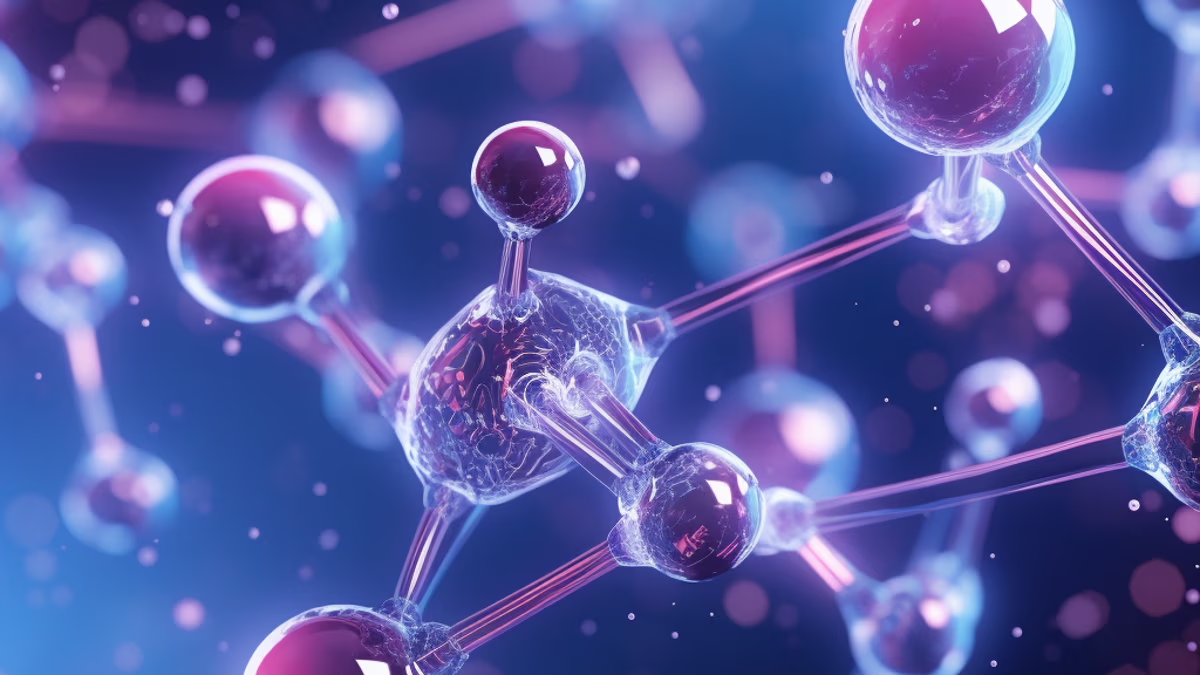
Amino acids, which control many functions in the human body, are widely used in the pharmaceutical market worth billions of dollars. Typically, these highly effective drugs need to be administered by injection and under the supervision of doctors.
How can we create short peptides and complexes that can be easily taken as juice or tablets?
Peptides are short chains of amino acids. In the human body, they act as signaling molecules, controlling various functions. Well-known examples include insulin, consisting of 51 amino acid blocks, which regulates sugar metabolism, and cyclosporine, an eleven-amino-acid peptide that has proven effective in suppressing organ transplant rejection reactions.
Peptides are excellent candidates for medicinal use, and more and more advanced research is being conducted in this field. The body already uses them as signaling molecules, producing them from ingested food. Once they have fulfilled their function, the body can easily process them without enrichment, complex detoxification, complications, or side effects.
Thus, worldwide, more than 500 peptide-based drugs are currently in clinical and laboratory trials. The majority of these peptide drugs are already generating billion-dollar sales and are becoming increasingly essential for humanity.
As proteins are an essential component of food, there are countless enzymes in the stomach and intestines that break down proteins into amino acids linked by peptide bonds (peptides). In recent years, the global peptide and peptide complex manufacturing industry has developed several effective strategies for creating linear peptides consisting of 2 to 4 amino acid molecules. This is because cyclic and long-chain peptides are more vulnerable to degradation, undergoing a complex process to penetrate the gastrointestinal tract before entering the bloodstream.
One of the strategies involves protecting amide groups with methyl groups, and the installation of mirror-image D-amino acids hinders the attack of digestive enzymes. Linear peptide compounds (short peptides) can easily pass through the stomach, bypassing the obstacles posed by the intestinal walls on their way to entering the bloodstream.
The task of protecting peptide compounds from degradation with a cyclic model peptide was addressed using a model of six molecules of the simplest amino acid, alanine. Scientists studied how the replacement of hydrogen atoms with methyl groups in peptide bonds affected oral availability. The result was more than 50 variations of peptides, and cell tests showed that only very short, specific peptide variants consisting of 2 to 4 amino acid molecules were rapidly absorbed. These could be used with a specific structure of the existing transport system.
Integrin receptors, which control various cell surface functions, were selected as targets for testing short peptides. The sequence of three amino acids—arginine, glycine, and aspartic acid—served as the key to detecting these receptors. Scientists created different variants by positioning the key sequence differently. However, both the negatively charged side chain of aspartic acid and the positively charged arginine proved to be criteria for using the transport system. These charged groups need to be masked with protective groups. Despite the initial loss of the peptide’s ability to bind to the target molecule, choosing the right protective group allows enzymes ubiquitous in the blood to cleave them, and the effect is restored upon reaching the destination.
Cell tests demonstrated the oral availability of short peptides, confirming that these short peptide chains have high biological activity at low doses. Studies on mice receiving injections and oral doses showed similar effectiveness.
Experts have previously referred to the oral availability of peptide-based drugs as the “Holy Grail.” However, according to the strategy implemented in IPH peptide production technology, along with laboratory and clinical evidence on how to address stability and absorption issues to achieve biological effectiveness, peptide complexes can already be consumed today in the form of juice, tablets, capsules, or water-soluble sticks.